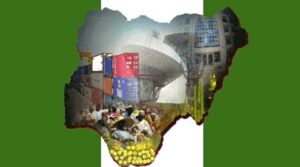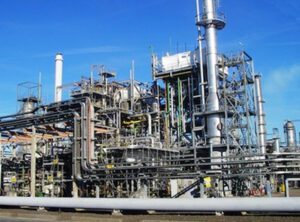

NDLEA’s Christmas Eve bust highlights persistent challenges
The recent drug bust by operatives of the National Drug Law Enforcement Agency (NDLEA) on Christmas Eve serves as a stark reminder of the ongoing battle Nigeria faces in curbing drug trafficking and the negative effects it has on society. The operation, which led to the seizure of a massive 1,960 kilograms of cannabis, popularly known as “Ghanaian Loud,” at Eleko Beach in Lekki, Lagos, underscores the tenacity and innovation of criminal syndicates in the drug trade.
This interception, one of many carried out by the NDLEA, highlights the persistent problem of drug smuggling, not only through land and air routes but also by waterways, taking advantage of Nigeria’s extensive coastlines.
The NDLEA’s successful operation, which saw six foreign nationals arrested, demonstrates the agency’s vigilance and effectiveness in tackling a sophisticated drug trafficking network. However, it also underscores the international dimensions of the issue, with traffickers leveraging cross-border collaborations to bring illicit substances into the country.
The involvement of two Ghanaians and four Beninese nationals, all arrested while attempting to smuggle cannabis via boats, highlights the regional nature of the problem, and reinforces the need for stronger regional cooperation in combating drug trafficking.
The bust is part of a broader crackdown by the NDLEA on drug trafficking along Nigeria’s coastline, which remains a significant concern due to the country’s strategic geographical location. While this operation can be seen as a major success, it is also a stark reminder of the continuous and evolving nature of the drug trade, which often adapts to law enforcement strategies. The concealment of the cannabis in large parcels hidden in boats is just one example of how traffickers attempt to outwit security forces. Therefore, the NDLEA’s ongoing investment in marine surveillance and its capacity to intercept these operations must be commended.
In addition to this successful operation, another arrest in Abuja highlighted the ingenuity of drug traffickers who use unsuspecting individuals as couriers. Orizu Arthur, a 48-year-old businessman, was arrested at Nnamdi Azikiwe International Airport after he attempted to board a flight to Paris, carrying Class A drugs.
The story of his arrest is a reminder of the ways drug traffickers exploit vulnerable individuals, promising financial rewards for smuggling drugs across borders. Arthur’s case, where the drugs were expelled from his body over a week, demonstrates the lengths to which some will go for monetary gain, risking not only their freedom but also their lives.
The NDLEA’s actions in other parts of the country, particularly in Katsina and Benin City, further illustrate the widespread nature of drug trafficking within Nigeria. The arrests of individuals carrying large quantities of cannabis and dangerous substances like tramadol and codeine-based syrups show that the drug trade does not discriminate by location. These incidents further highlight the growing concern of prescription drug abuse in Nigeria, which has led to alarming cases of addiction and health crises in recent years.
While the NDLEA’s efforts should be celebrated, the persistent nature of the drug trade raises several important questions about the state of law enforcement, drug education, and public health strategies in Nigeria. The agency’s success in seizing drugs and making arrests is commendable, but it is clear that more needs to be done to break the cycle of drug trafficking and abuse.
First, there is a need for greater international collaboration in tackling the transnational drug trade. With drugs being smuggled into the country via various channels, the Nigerian government must engage more effectively with neighbouring countries and global drug enforcement agencies to strengthen border controls and intercept illicit shipments before they reach Nigeria. Regional cooperation should be a priority to dismantle the networks that operate across West Africa and beyond.
There is also an urgent need for a more robust public education campaign on the dangers of drug abuse and trafficking. While law enforcement plays a crucial role, the public must also be made aware of the devastating impact of drug trafficking on communities and individuals. Education can play a pivotal role in reducing the demand for illicit drugs, which would, in turn, decrease the incentives for traffickers.
Nigeria must also enhance its support systems for rehabilitation and reintegration of those affected by drug addiction. With growing cases of drug abuse, particularly in urban centres, providing adequate treatment options and rehabilitation programmes will be essential in reducing the societal impact of drugs.
The successful Christmas Eve bust by the NDLEA is a timely reminder of the scale of Nigeria’s drug trafficking problem. While the agency’s vigilance and action are commendable, there is still much work to be done. The battle against drug trafficking is far from over, and it will take concerted efforts from all levels of government, law enforcement, and society to effectively tackle this menace. The fight against the illegal drug trade requires a comprehensive approach that includes law enforcement, public education, and rehabilitation, ensuring that Nigeria remains a safer, healthier nation for all.




